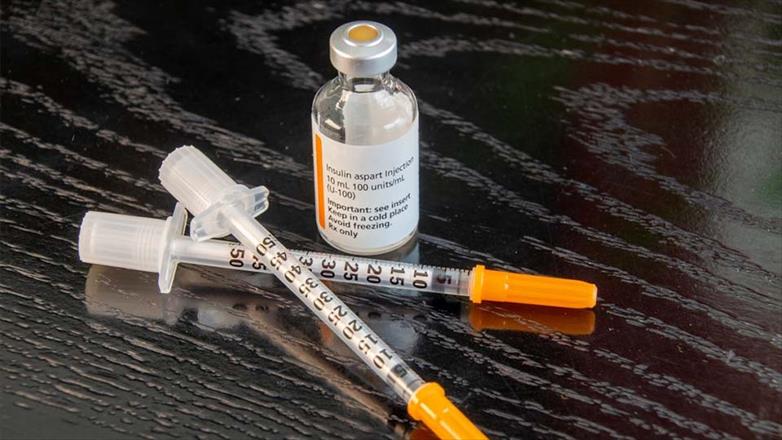Diabetes, Type 2: Symptoms, Causes & Treatment
What are the symptoms of type 2 diabetes?
Type 2 diabetes is a chronic condition that affects how the body metabolizes sugar (glucose), a crucial source of fuel for the body’s cells. Symptoms of type 2 diabetes can be subtle and develop slowly over time. Some common symptoms include:
- Increased Thirst: Excessive thirst (polydipsia) is often one of the first symptoms of type 2 diabetes.
- Frequent Urination: Increased urination (polyuria) is another common early symptom, as the body tries to rid itself of excess sugar through urine.
- Increased Hunger: Despite eating, people with type 2 diabetes may still feel very hungry.
- Unexplained Weight Loss: Weight loss may occur despite increased appetite and eating, as the body cannot use glucose properly for energy.
- Fatigue: Feeling tired or fatigued is common, as the body’s cells are not getting enough glucose for energy.
- Blurred Vision: High blood sugar levels can cause temporary vision changes.
- Slow-Healing Sores or Cuts: High blood sugar can affect the body’s ability to heal.
- Yeast Infections: In women, frequent yeast infections may occur due to high blood sugar levels.
- Darkened Areas of the Skin: This is known as acanthosis nigricans and is a sign of insulin resistance, which can lead to type 2 diabetes.
- Numbness or Tingling in Hands or Feet: This may be a sign of nerve damage (neuropathy) caused by high blood sugar levels.
It’s important to note that not everyone with type 2 diabetes will experience symptoms, and some people may have the condition for years without knowing it. If you experience any of these symptoms, especially if they are persistent or severe, it’s important to see your healthcare provider for an evaluation. Early diagnosis and treatment of type 2 diabetes can help prevent complications and improve quality of life.
What is the cause of type 2 diabetes?
Type 2 diabetes develops when the body becomes resistant to insulin or when the pancreas is unable to produce enough insulin to maintain normal blood sugar levels. Insulin is a hormone that helps regulate blood sugar levels by allowing cells to take in glucose from the bloodstream to use as energy.
The exact cause of type 2 diabetes is not fully understood, but several factors may contribute to its development, including:
- Insulin Resistance: In people with insulin resistance, cells do not respond properly to insulin, leading to higher levels of glucose in the bloodstream. This can eventually lead to type 2 diabetes.
- Genetics: Family history and genetics play a role in the development of type 2 diabetes. Having a close relative, such as a parent or sibling, with type 2 diabetes increases the risk of developing the condition.
- Obesity: Being overweight or obese is a major risk factor for type 2 diabetes. Excess body fat, especially around the abdomen, can increase insulin resistance and lead to elevated blood sugar levels.
- Lifestyle Factors: Poor diet, lack of physical activity, and unhealthy lifestyle habits, such as smoking and excessive alcohol consumption, can increase the risk of developing type 2 diabetes.
- Age: The risk of type 2 diabetes increases with age, especially after the age of 45. This may be due in part to the natural aging process and changes in hormone levels.
- Ethnicity: Certain ethnic groups, including African Americans, Hispanic Americans, Native Americans, and Asian Americans, are at higher risk of developing type 2 diabetes.
- Gestational Diabetes: Women who develop gestational diabetes during pregnancy are at increased risk of developing type 2 diabetes later in life.
While these factors can increase the risk of developing type 2 diabetes, not everyone with these risk factors will develop the condition. Making healthy lifestyle choices, such as maintaining a healthy weight, eating a balanced diet, and exercising regularly, can help reduce the risk of type 2 diabetes.
What is the treatment for type 2 diabetes?
The main goals of treatment for type 2 diabetes are to manage blood sugar levels, prevent complications, and improve quality of life. Treatment for type 2 diabetes may include:
- Lifestyle Changes: Eating a healthy diet, maintaining a healthy weight, and exercising regularly can help manage blood sugar levels and improve insulin sensitivity. A registered dietitian can help develop a meal plan that meets individual needs.
- Monitoring Blood Sugar Levels: Regular monitoring of blood sugar levels can help track how well treatment is working and identify any patterns or trends that may need to be addressed.
- Medications: Oral medications, such as metformin, sulfonylureas, meglitinides, DPP-4 inhibitors, SGLT2 inhibitors, and thiazolidinediones, may be prescribed to help lower blood sugar levels. In some cases, insulin therapy may be needed, either alone or in combination with oral medications.
- Weight Management: Losing weight, if overweight, can help improve insulin sensitivity and blood sugar control.
- Physical Activity: Regular physical activity can help lower blood sugar levels, improve insulin sensitivity, and reduce the risk of complications.
- Blood Pressure and Cholesterol Control: Managing blood pressure and cholesterol levels is important for reducing the risk of heart disease, which is more common in people with diabetes.
- Regular Monitoring and Follow-Up: Regular visits with healthcare providers, including eye exams, foot exams, and kidney function tests, are important for monitoring and managing diabetes and its complications.
- Education and Support: Diabetes education and support programs can provide valuable information and resources to help manage diabetes effectively.
It’s important for individuals with type 2 diabetes to work closely with their healthcare team to develop a personalized treatment plan that meets their needs and lifestyle. With proper management, most people with type 2 diabetes are able to live healthy, active lives.




